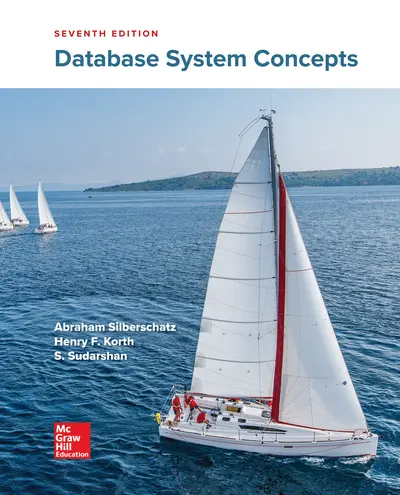My Account Details

ISBN10: 0078022150 | ISBN13: 9780078022159

* The estimated amount of time this product will be on the market is based on a number of factors, including faculty input to instructional design and the prior revision cycle and updates to academic research-which typically results in a revision cycle ranging from every two to four years for this product. Pricing subject to change at any time.
Instructor Information
Quick Actions (Only for Validated Instructor Accounts):
Database System Concepts by Silberschatz, Korth and Sudarshan is now in its 7th edition and is one of the cornerstone texts of database education. It presents the fundamental concepts of database management in an intuitive manner geared toward allowing students to begin working with databases as quickly as possible.
The text is designed for a first course in databases at the junior/senior undergraduate level or the first year graduate level. It also contains additional material that can be used as supplements or as introductory material for an advanced course. Because the authors present concepts as intuitive descriptions, a familiarity with basic data structures, computer organization, and a high-level programming language are the only prerequisites. Important theoretical results are covered, but formal proofs are omitted. In place of proofs, figures and examples are used to suggest why a result is true.
Chapter 2: Introduction to the Relational Model
Chapter 3: Introduction to SQL
Chapter 4: Intermediate SQL
Chapter 5: Advanced SQL
Part II: Database Design
Chapter 6: Database Design Using the E-R Model
Chapter 7: Relational Database Design
Part III: Application Design and Development
Chapter 8: Complex Data Types
Chapter 9: Application Development
Part IV: Big Data Analytics
Chapter 10: Big Data
Chapter 11: Data Analytics
Part V: Storage Management and Indexing
Chapter 12: Physical Storage Systems
Chapter 13: Data Storage Structures
Chapter 14: Indexing
Part VI: Query Processing and Optimization
Chapter 15: Query Processing
Chapter 16: Query Optimization
Part VII: Transaction Management
Chapter 17: Transactions
Chapter 18: Concurrency Control
Chapter 19: Recovery System
Part VIII: Parallel and Distributed Databases
Chapter 20: Database-System Architectures
Chapter 21: Parallel and Distributed Storage
Chapter 22: Parallel and Distributed Query Processing
Chapter 23: Parallel and Distributed Transaction Processing
Part IX: Advanced Topics
Chapter 24: Advanced Indexing Techniques
Chapter 25: Advanced Application Development
Chapter 26: Blockchain Databases
Part X: Appendix A
Appendix A: Detailed University Schema
Part XI: Online Chapters
Chapter 27: Formal Relational Query Languages
Chapter 28: Advanced Relational Database Design
Chapter 29: Object-Based Databases
Chapter 30: XML
Chapter 31: Information Retrieval
Chapter 32: PostgreSQL
Accessibility
Creating accessible products is a priority for McGraw Hill. We make accessibility and adhering to WCAG AA guidelines a part of our day-to-day development efforts and product roadmaps.
For more information, visit our accessibility page, or contact us at accessibility@mheducation.com
Affordability
Reduce course material costs for your students while still providing full access to everything they need to be successful. It isn't too good to be true - it's Inclusive Access.
Need support? We're here to help - Get real-world support and resources every step of the way.